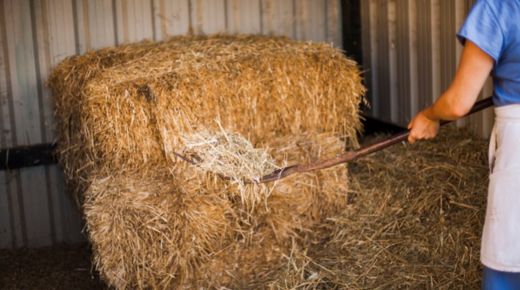
alfalfa hay for sale
Buying alfalfa hay can be a significant investment for those who own livestock, particularly horses, cattle, and goats. Alfalfa hay is highly nutritious and serves as an excellent source of protein, fiber, vitamins, and minerals. However, purchasing quality alfalfa hay involves several considerations to ensure you make the best choice for your animals. This guide outlines the essential factors to consider when buying alfalfa hay for sale.
Understanding Alfalfa Hay
Alfalfa (Medicago sativa) is a perennial flowering plant in the legume family, widely recognized for its high protein content and digestibility. It is often referred to as “the queen of forage” due to its numerous nutritional benefits. Alfalfa hay is typically harvested at the bloom stage when it reaches peak nutritional value. This makes it an ideal feed for growing animals, lactating dairy cows, and horses in heavy training.
Nutritional Value
Before purchasing alfalfa hay, it’s crucial to understand its nutritional composition. Alfalfa hay is rich in:
- Protein: Contains 15-25% crude protein, making it an excellent choice for young, growing animals and lactating females.
- Fiber: Provides a good source of digestible fiber, which is essential for digestive health.
- Vitamins and Minerals: High levels of vitamins A, D, E, and minerals such as calcium and potassium, which are vital for overall health.
Quality Indicators
When searching for alfalfa hay for sale, look for specific indicators that signify quality:
- Color: High-quality alfalfa hay should be bright green. Dull, yellowish hay may indicate that it has been overexposed to sunlight or poorly stored, leading to nutrient loss.
- Leafiness: A high leaf-to-stem ratio is a good sign of quality. Leaves are where most of the nutrients are concentrated, so hay that is leafy will generally be more nutritious.
- Aroma: Fresh alfalfa hay should have a sweet, pleasant aroma. A musty or moldy smell may indicate spoilage.
- Absence of Weeds: Weeds can compete with alfalfa for nutrients and can even be harmful to livestock. Ensure that the hay you purchase is free from undesirable plants.
Types of Alfalfa Hay
Alfalfa hay comes in various forms, including:
- Cubes: Compressed alfalfa hay cubes are convenient and easy to feed. They typically contain the same nutritional value as loose hay.
- Bales: Available in square or round bales, this is the most common form. Ensure the bales are tightly bound and free from excessive moisture.
- Pellets: These are ground and compressed alfalfa hay, making them easy to store and feed. They are especially useful for animals that require specific dietary management.
Where to Buy Alfalfa Hay
When looking for alfalfa hay for sale, consider the following sources:
- Local Farms: Many local farmers produce and sell hay directly. This option allows you to inspect the hay before purchasing.
- Feed Stores: Agricultural supply stores often stock alfalfa hay, providing various options for size and quality.
- Online Marketplaces: Websites and platforms dedicated to agricultural products may offer a wide selection of alfalfa hay, allowing you to compare prices and quality from different sellers.
- Livestock Auctions: These venues can also be a good place to find hay, though the quality can vary.
Storage and Preservation
Once you’ve purchased alfalfa hay, proper storage is essential to maintain its quality:
- Keep it Dry: Store hay in a dry, well-ventilated area to prevent mold growth and nutrient loss.
- Elevate the Bales: Place hay on pallets or in a shed to avoid direct contact with the ground, reducing moisture absorption.
Conclusion
Buying alfalfa hay requires careful consideration of quality, nutritional value, and storage methods. By keeping these factors in mind and thoroughly inspecting hay before purchasing, you can ensure you provide your livestock with the best nutrition possible. Whether you’re looking for alfalfa hay for sale at a local farm, feed store, or online marketplace, this guide will help you make informed choices for the health and well-being of your animals. Remember, investing time in selecting high-quality hay can lead to better health and performance for your livestock in the long run.







